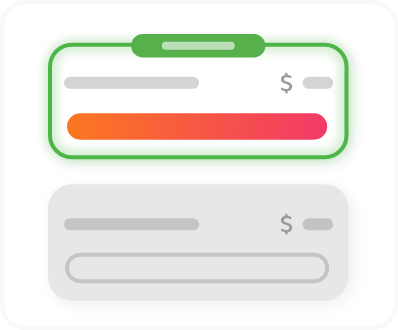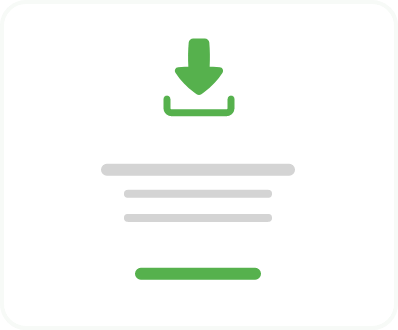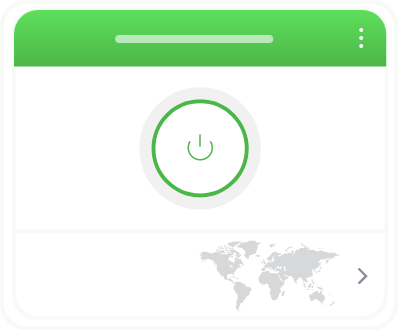What Is a VPN?
A VPN, or virtual private network, is an app that can greatly increase your online security, privacy, and freedom. When you use a VPN, you can:
- Secure your traffic with best-in-class encryption
- Bypass network blocks and access sites securely
- Stay connected to e-services when you travel abroad



What Does a VPN Do?
When you go online with a VPN, all your inbound and outbound traffic travels through an encrypted tunnel. This means ISPs, cybercriminals, network admins, and anyone else who might be snooping on your activity won’t be able to see what you’re up to.
A VPN routes your traffic through a remote server instead of sending it straight to the site you’re trying to reach. This masks your real IP address with one of its own, hiding it from prying eyes. That way, none of your activity can be linked back to your real IP address.
A VPN can also make it seem like you’re somewhere else. If you’re in the UK, for instance, you can connect to a VPN server in the US to get a US IP address. The more servers and country locations your VPN provider has, the more options you have.
VPNs Give You Extra Privacy, Safety, and Freedom Online

Boost Your Defenses
Powerful VPN encryption keeps your browsing data safe and secure from snoops and cybercriminals on public Wi-Fi.

Bypass Censorship
When you change your IP address, you can bypass government censorship and access your favorite content, no matter where you are.

Reclaim Your Privacy
An ironclad no-logs policy, supported by RAM-only servers, will keep your online activity private and protected.

Game Securely
Encryption means you can game without worrying about DDoS attacks or being bullied by jealous rivals.

Stay Connected Abroad
Connecting to a VPN server back home helps you reach streaming platforms and other essential e-services when you travel abroad.

Save Money Shopping Online
You can change locations and compare prices before you buy so you can dodge price discrimination, find cheaper deals, and save money.
How Does a VPN Work?
PIA VPN acts like a safety buffer between your device and the websites or applications you connect to.
- Your traffic is encrypted
- Your IP address is private
- You can easily change your IP address
- You can bypass network restrictions
- You have more protection from cybercriminals
- You enjoy unrestricted access to the internet
- Advertisers will struggle to profile you
- Data brokers can’t profit from your browsing activity
- Your traffic is exposed
- You can’t easily change your IP address
- Your access is heavily restricted
- Data brokers can profit off of your browsing activity
- Your IP address is public
- You’re exposed to cyber attacks
- Advertisers can easily profile you
- You’re subject to network restrictions


What Is a VPN Server?
A VPN server is a physical or virtual server configured with VPN software to deliver a VPN service. It’s what allows you to change your IP address to one from another country. When you connect to a VPN server it randomly assigns you a new IP address and hides your real IP address so it seems you’re elsewhere.
The wider the server network, the wider your location choice. PIA VPN has servers in 91 countries across the Americas, Europe, Asia, the Middle East, and Africa. You can use PIA VPN to change your IP address to almost anywhere in just a few clicks.

Worldwide Server Network
Get access to VPN servers in all 50 states and over 154 locations in 91 countries.

RAM-Only Servers
Rest easy knowing our volatile RAM-only servers will never store your data.

NextGen 10-Gbps Servers
Steam, game, and torrent without lag or interruptions, even during peak traffic times.

Streaming-Optimized Servers
Avoid being blocked from Netflix, Hulu, HBO Max, and other platforms.

How Does VPN Encryption Work?
When you connect to the internet through a VPN, it breaks your data into tiny pieces and encapsulates them in layers of virtually unbreakable ciphertext. Your VPN then transports these protected data packets through an encrypted tunnel. Just before your data reaches its destination, the VPN client decrypts it to make it readable again.
This process works whether you’re sending or receiving data, ensuring all your online activity stays private. If your ISP, your network admin, or cybercriminals tried to look at your online activity, all they’d see is unreadable code, all thanks to VPN encryption.
How Does VPN Tunneling Work?
VPN tunneling creates a secure, encrypted connection between your device and the internet. Here's how it works:
- You sign up for a VPN service and connect to your chosen server location.
- The VPN app establishes an encrypted tunnel to send your traffic through.
- Your traffic is routed to the remote VPN server, which hides your real IP address behind one of its own.
- Your data is decrypted and delivered to its intended destination.
When you use a VPN, your ISP, network admins, and other third parties can’t read your traffic as it flows through this encrypted tunnel.
A VPN client should direct all your device’s traffic through the tunnel by default, including all app and browser traffic. PIA VPN’s split tunneling feature lets you choose which apps you’d prefer to bypass the VPN tunnel, giving you even more control.


What Does a No-Logs Policy Mean?
Your online activity is a cash cow for marketers and data brokers, even though data harvesting is a violation of your right to privacy. A no-logs policy is a promise many VPNs make that they never record your online activity, despite how tempting it may seem.
The truth is, some VPNs break their promises, so it’s crucial that your VPN can back its no-logs claim – otherwise, how can you know for sure they’re not collecting and selling your browsing data? That’s why at PIA, we’ve had our no-logs policy independently audited and approved by Deloitte. It’s also been proven in US courts multiple times.
What Can a VPN Hide?
| What a VPN Hides | What a VPN Can’t Hide |
| Your IP address | Your identity on social media platforms |
| Your geo-location | The fact you’re using a VPN |
| Your online activity from snoops | Your activity from websites you’re logged into |
| Your search history from your ISP | Your device from malware |
| Your sensitive data on public Wi-Fi | Browser fingerprinting |
How to Choose a VPN

Total Transparency
PIA is a 100% open-source VPN, meaning anyone can view and verify our source code's integrity. You can stream, browse, and torrent with peace of mind when you use a fully transparent VPN.

Proven No-Logs Policy
Our uncompromising dedication to your privacy is backed by a no-logs policy that’s Deloitte-approved and also proven in court. We can’t hand over your data as we use RAM-only servers – no data can be stored long-term.

Global High-Speed Network
PIA VPN’s 10-Gbps servers deliver lightning-fast speeds worldwide, even during peak times. Steam, game, download files, or simply browse whenever you like without lag.

No Device or Bandwidth Limits
We’ll never limit your bandwidth or cap your usage. You’re free to keep your VPN activated across all your devices, stream in UHD, or game all weekend without being cut off.

24/7 Customer Support
Get in touch with a VPN expert whenever you need to. Our 24/7 customer support team is standing by via email or live chat.

Extra Features
PIA is a feature-rich VPN that delivers both privacy and security. Our integrated kill switch keeps your data safe on patchy Wi-Fi, while MACE blocks trackers, ads, and malicious content.

Device Support
No matter what device you use, we’ve got you covered, with VPN apps for Windows, macOS, Linux, iOS, and Android. Connect as many devices as you want to, there’s no limit!

Pricing
A free VPN can be tempting, but it can also mean being bombarded by ads or infected with malware. Go for a premium VPN instead and get the protection you pay for.
How to Set up a VPN in 3 Steps
You can download PIA VPN for PC, Mac, Linux, iOS, and Android on as many devices as you like. Need to secure your entire home network? Set up PIA VPN on your router to cover all connected devices. Our apps are a breeze to get going with, but if you have any questions, our customer support team is standing by.
What Are VPN Encryption Protocols?
A VPN protocol determines the way your data is encrypted and is responsible for establishing a secure connection between the VPN client and the server. Older protocols sometimes sacrifice speed for security and vice versa, but newer protocols like WireGuard® offer the perfect balance between security and speed.
| VPN Protocol | Background | Device Support | Supported by PIA VPN |
| OpenVPN | The ever-faithful OpenVPN is open-source, meaning the source code is available for anyone to scrutinize. Over the years, many security experts have contributed to its overall integrity, which is why it’s so widely trusted. OpenVPN offers a balance between speed and security, making it a good, all-round protocol. | Windows, macOS, Linux, Android, and iOS | Yes |
| IKEv2/IPSec | IKEv2 (Internet Key Exchange Version 2) is based on the earlier IPSec protocol and is fast, stable, and secure. It auto-connects when you switch between networks, making it convenient if you’re always on the go. | Windows, macOS, Android, iOS, Linux, and routers | Yes (iOS only) |
| WireGuard® | WireGuard® is a lightweight, open-source protocol that’s ultra-fast, stable, and secure. It’s perfect for data-intensive tasks like streaming, gaming, and torrenting. | Windows, macOS, BSD, iOS, and Android | Yes |
| PPTP | Point-to-Point Tunneling Protocol (PPTP) is very old and has been repeatedly cracked by security experts. The upside is it’s fast and compatible with older devices. | Windows, Linux, and Android | No |
| SSTP | Secure Socket Tunneling Protocol (SSTP) replaced PPTP as a more secure protocol. The downside is it’s slow and only compatible with Windows. | Windows | No |
| Shadowsocks | Shadowsocks is an open-source proxy encryption protocol often used to bypass online censorship. Shadowsocks is fast, but it’s not as user-friendly as a VPN. | Windows, macOS, Linux, iOS, and Android. | No |
Types of VPN

Personal VPN
A personal VPN is a virtual private network designed for personal use. Typically, you'll download an app you can use to encrypt your online traffic and mask your IP address.
A personal VPN increases your security and privacy, whether you’re streaming, gaming, shopping, torrenting, or browsing the internet. You can also use it to bypass online censorship, unblock websites at work or school, and stay connected to streaming services while abroad.

Site-to-Site VPN
A site-to-site VPN is a virtual private network that links two separate sites or LANs (local area networks), creating a WAN (wide area network). No VPN client (app) or VPN server is required to set up a WAN. Sites are connected through gateways while the traffic is encrypted for added privacy and security.
Businesses with offices in different locations often use site-to-site VPNs to stay connected.

Remote Access VPN
While a site-to-site VPN connects a network to another network, a remote access VPN connects a user securely to a network. Like a personal VPN, a remote access VPN requires a VPN client. These are mostly used by remote workers who need to securely access company resources and networks.
Why Choose PIA's VPN?

Anonymity
Our 100% no-logs policy means we'll never collect or store any of your data, ever.

Transparency
All of PIA’s VPN apps are 100% open source, transparent, and auditable by anyone.

Expertise
PIA has 10+ years of expertise developing and delivering an industry-leading VPN service.

Support
If you experience any difficulties with our products, our team of friendly VPN experts is available 24/7.

Speed
Our global network of world-class servers is optimized for blazing-fast speeds (and unlimited bandwidth).

Utility
One PIA VPN subscription covers unlimited devices simultaneously, with dedicated apps for all major platforms.
PIA VPN vs. Free VPNs
PIA VPN
- Open-source apps
- No usage logs
- Unlimited bandwidth
- High-speed global server network
- Dedicated apps
![undefined]()
- Powerful encryption
- Block ads, trackers & malware
- 24/7 live support
Free VPNs
- Limited transparency
- Log and track your activity
- Limited data
- Slow speeds
- Usually browser extensions only
- Outdated technology
- Sell data to advertisers
- No support
Choose the Plan That's Right for You

3 Years + 3 Months
$2.03/mo$466.05 $79 per 3 years
Billed every 3 years
3 Years + 3 Months
$2.03/moSave 83%
$466.05 $79 per 3 years
Billed every 3 years

All amounts are shown in USD, and any discounts reflect a reduction based on the current monthly service pricing at $11.95 per month.
FAQ
A VPN, or virtual private network, is an app you use to secure your internet connection and increase your online freedom. A VPN hides your IP address and your online activity from ISPs, advertisers, snoops, and cybercriminals. It can also help you unblock websites at work or school, or stream your favorite Netflix show when traveling abroad.
When you connect to the internet with a VPN your traffic flows through an encrypted tunnel, protecting it from prying eyes. Now that your online activity is safely wrapped in a cipher, your ISP, network admin, and other snoops can’t see what you’re doing online. A VPN also masks your IP address with a borrowed one so they can’t trace your activity back to your real IP address either.
Yes, especially if you’re concerned about your privacy and security. Keeping your VPN always on will ensure your browsing stays private. ISPs and data brokers can’t profit off your data, and advertisers can’t profile you with any degree of accuracy. It’ll also keep you safe from cyber attacks, especially those lurking on public Wi-Fi.
If you’re worried about a VPN affecting your mobile data usage or battery life, use PIA VPN. Our MACE feature blocks ads automatically, which can conserve your device’s battery life and your mobile data. MACE also blocks trackers and malware, boosting your security online.
Yes. VPN services are legal in almost every country. No matter where you are in the world, you have a right to use a VPN to increase your online privacy, security, and freedom.
PIA VPN makes it super easy to set up a VPN connection. All you need to do is choose your plan, sign up for the service, download the VPN, and connect. It’s that simple. If you want to connect to a server in a different location, click VPN server, select a location, tap the big power button, and you’re all set.
You can, but that doesn’t mean you should. Free VPNs can slow your connection down because they tend to have limited and outdated infrastructure. Worse, a free VPN may collect and share your usage logs, violating your privacy. Some less trusted VPNs may even infect your device with malware.
Forget about slow speeds, data collection, and sketchy security. Rely on PIA VPN’s lightning-fast speeds, court-proven no-logs policy, and top-notch security instead. Try it risk free with a 30-day money-back guarantee.
Many devices have native VPN features but they may require some manual configuration. To find out if your device has a VPN, head over to settings and search for “VPN”. The setup process will vary and can be time-consuming.
For a shortcut, download PIA VPN and try it out for yourself with our 30-day money-back guarantee. PIA VPN’s intuitive apps for PC, Mac, Linux, iOS, and Android make protecting your online privacy and security a cinch
Still Not Convinced? Download PIA VPN Risk-Free
You're covered by our 30-day money-back guarantee. If you're not satisfied, request a refund.

Disclaimer: Using PIA VPN for illegal purposes is a violation of our Terms of Service.




